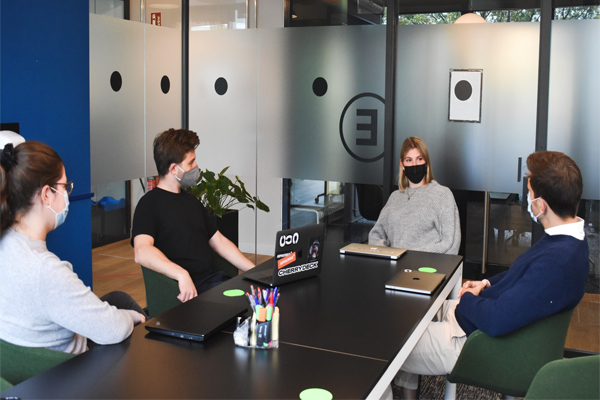The pandemic has exposed many inequalities. Introducing flexible working – not just remote working – is now a real opportunity to create greater inclusivity. Kay Hussain, Chief Executive of WISE, the campaign for greater gender balance in STEM, believes it’s time to embrace flexible working for all; and urges employers to act now to make the shift and reap the benefits.
Over the last year, we’ve seen employers rapidly adopt remote working for many of their employees. However, remote working is not the same as flexible working; and the challenge now is to take this opportunity to introduce truly flexible working for all.
There is demand for greater flexible working as the results of our short snapshot survey of women’s experience of working in STEM during the last year shows. The survey (conducted between 17 December 2020 and 15 January 2021) revealed that 72% of respondents felt flexible working was very important/important to their career progression. If you need any more evidence that flexible working is in demand, new research from the government and the recruitment website Indeed reveals offering flexible working arrangements increases job applications by 30%.
REMOTE VERSUS RETURN TO OFFICE
So, as we look towards the relaxation of lockdown, many of us are beginning to consider our longer-term working patterns; and there’s a wide range of options and opinions. Probably not surprisingly, the focus is on remote working versus a return to the office. In the banking sector, there are mixed views. Goldman Sachs, Barclays and J P Morgan all suggest that a return to the office for most employees will be on the cards. Meanwhile, Lloyds Banking Group is reducing its office space as it expects employees to work in a more hybrid manner. Many major tech companies have suggested that remote working is or will be the new normal, while the majority of employers are expecting to adopt a hybrid (part office, part remote) approach.

With location being only part of the issue, perhaps the most innovative approach towards flexible working for all is the experimentation with the four-day week that is emerging. This feels more like flexible working. It is being embraced globally as potentially the solution to greater productivity. Research by the University of Reading showed that almost two-thirds of businesses with a four-day week report improved productivity, better work-life balance, improved employee mental health and reduced carbon footprint.
ENSURING FAIRNESS & INCLUSION
Whatever your future workplace is going to look like, our advice to all employers is to start planning now. Keep diversity and inclusion at the forefront of your decisions to ensure that no one is unfairly impacted by any changes to working patterns; and that there is equality of opportunity for all your employees.
We need to ensure flexible working is more than simply location. We need to consider other elements that make up true flexible working, such as options for part-time, flexi-time, job shares, and four day a week working, that allow people to create a better work-life balance.

FLEXIBLE WORKING RECOMMENDATIONS
Our advice for employers adopting flexible working includes:
- Ensure diversity and inclusion are at the forefront of flexible working policies.
- Advertise flexible working when recruiting.
- Make flexible working an option for everyone from day one.
- Provide all employees with equal opportunities for visibility to senior leaders to ensure progression.
- Ensure employees can network and collaborate easily.
- Create a support process for new recruits with opportunities to network, meet mentors and to learn the business from their team members.
- Ensure that working onsite is for productive reasons; rather than answering emails or doing admin which could be better done remotely.
The pandemic has already exposed so many inequalities in society. Now we have a unique opportunity to be bold, take a step forward and do something different. By placing inclusion at the heart of our businesses and removing barriers to work, we can celebrate our differences, benefit from greater productivity, and build a culture that allows everyone to reach their full potential, feel valued and supported. There is plenty of evidence for the business case for diversity and inclusion; flexible working is one central aspect that can reap benefits for everyone – let’s get this right.

AUTHOR BIOGRAPHY
Kay Hussain is Chief Executive of WISE, the UK campaign for greater gender balance in STEM. Passionate about making a difference in her professional career to date, she has focused on improving the health and wellbeing of people in society; through a variety of senior leadership roles in the pharmaceutical industry; most recently as a Managing Director for the UK and Netherlands.
As an active volunteer aligned to helping others advance their learning and capability to proactively enhance outcomes, Hussain is currently a STEM Ambassador working with local schools and colleges. She also serves as a Business Mentor and Board Member of the Educational Standards Committee for NE Futures UTC. Additionally, she represents the Life Sciences industry as a senior leader in the First for Pharma network; and serves as a Board Trustee for Cygnus Support, a mental health and wellbeing charity.








































